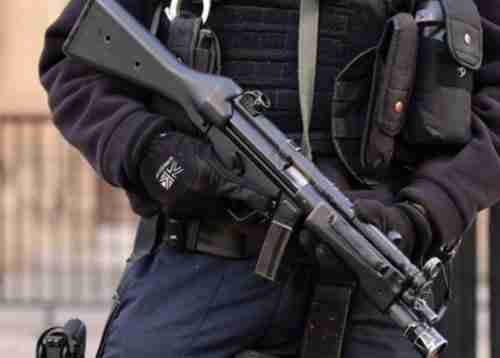WE NEED ZERO TOLERANCE
India urgently needs an intelligence driven counter terror organisation …… By Maroof Raza and Pathikrit Payne
If the bi-cycle blasts in Pune had worked to a plan, they would have taken scores of lives. Fortunately they didn’t. But their message is loud and clear: terror groups can still strike anywhere in India – except at well protected government buildings – with ease and impunity. And while the investigators piece together the evidence of who is behind it – with the Pakistani proxy, Indian Mujahideen, heading the list – the bigger question is: “how well prepared are we in India to deal with terror attacks”? The answer: barely so.
Following the horrific attack on Mumbai on 26th November 2008 (known as 26/11), the Union Home Ministry had apparently put together several initiatives to counter a Mumbai-II. And it is argued that if the scale and frequency of attacks within India since then, is anything to go by, then there is reason to believe many of these measures have worked. In reality though, we’ve been plain lucky, since our policemen are ill-equipped and still have little or no training.
Moreover, the urgency to use technology to improve policing is absent. Take the case of Pune itself. It’s police had demanded 837 CCTV’s, but only 79 are installed in the city, of which half apparently aren’t working. And those that work, aren’t monitored! Since the story is the same or even worse in most of our cities, the terrorists can strike in any other Indian city, at will.
What therefore can be done? In simple terms, India’s leadership must urgently do three things: (a) put public interest first and have the political will to deal with terrorism – emanating both from within and outside – as a national threat; (b) ensure that the policeman on the ground is trained and equipped to deal with the threats of today, not the 19th century. Make the police independent of political interference; and (c) improve intelligence gathering – the key to preventing future attacks – by creating better synergy between our intelligence agencies.
Much has been written about the intelligence failures that led to the 26/11 fiasco. Although there were several agencies in India looking into the various facets of terrorism, such as, the Intelligence Bureau (IB), the National Technical Research Organisation (NTRO), and of course the Research and Analysis Wing (RAW), most of them were and still are, disparate islands in an ocean. There is little trust between them, a lot of bureaucratic tangles and inter organizational turf wars are common. Thus, after 26/11 the National Investigation Agency (NIA) was created in the aftermath of 26/11, primarily to investigate a terrorist attack.
But the big idea, of a national Counter Terrorism Centre (NCTC), was shot down by the recalcitrant State governments, at first, by citing it as a threat to the Federal nature of our polity. In reality, they feared the erosion of their turf, especially in dealing with Maoists and minority groups, a potential political vote bank. National interest was clearly of little interest to them.
In fact, the NCTC apart, what India needs today is an integrated National Security Agency which should ideally have within it the four necessary pillars of investigation, intelligence, analysis and special operations capabilities, all integrated as one, by making the IB, RAW,NTRO, NIA, NCTC, and even NSG, all a part of an integrated National Agency through a statute of Parliament.
Currently all we have is a National Security Advisor, an IFS fiefdom, and his National Security Council secretariat. What India needs is an intelligence driven counter terror organisation, on the lines of America’s FBI, that terms itself as, “an intelligence-driven and a threat-focused national security and law enforcement organization” with a mandate “to protect and defend the United States against terrorist and foreign intelligence threats”, created by US federal statutes, transparent and accountable to US lawmakers.
Moreover, through the US Comprehensive Crime Control Act of 1984, the FBI is mandated to hunt and bring to justice killers of US citizens, hiding abroad. But this applies only for the enemies of the US, not to those on India’s most wanted list. For this, we need to make a ‘can-do’ list on how we could punish those who have taken countless Indian lives. India, must deal with terrorists within with ruthless efficiency, abandon the moral high ground with those abroad, by adopting a policy of ‘no-tolerance’. If the US can announce a $10 million award for Hafiz Saeed, what stops India from offering even more?
(The authors are with Security Watch India, an Counter Terrorism Initiative. These are their personal views.)



